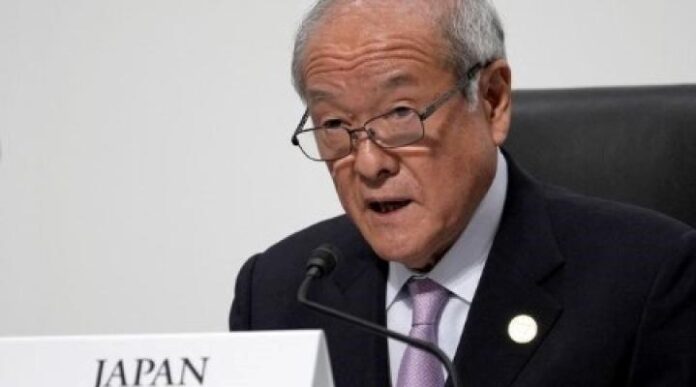Japan would take necessary measures if the yen falls below seven-month lows versus the dollar, said Finance Minister Shunichi Suzuki on Friday.
Suzuki cautioned investors against dumping the yen too much when it fell below 145 to the dollar, a level that made speculators concerned of probable intervention by Japanese authorities.
As the yen fell below 145 last September, the government intervened in markets to strengthen the currency for the first time in 24 years.
“It is important for currencies to move stably reflecting fundamentals,” Suzuki told reporters.
“Sharp and one-sided moves are seen in the currency market lately. The government is watching currency market moves with a great sense of urgency. We will respond appropriately if the moves become excessive.”
A weak yen has both positive and negative effects on the economy, depending for example on the export or import sectors.
However, it is not positive considering the current situation where government policy focuses on steps to mitigate the impact of rising prices, Suzuki added.
Generally, yen weakening pushes up import costs of food and energy for resource-poor Japan, which would deal a blow to consumers struggling to make ends meet.
Suzuki stopped short of saying he was ‘deeply concerned’ or declaring an intention to take ‘decisive steps’, which were the phrases he used as a prelude to the last time authorities intervened in the currency market.
On Friday, the Japanese currency struck 145.07 per dollar in early Asia trade, its lowest in over seven months, but it had steadied to 144.80 by late morning.
The yen has depreciated by more than 9% against the dollar so far this year.
Japanese authorities have said the velocity of currency moves are the deciding factor for intervention, not specific levels.


